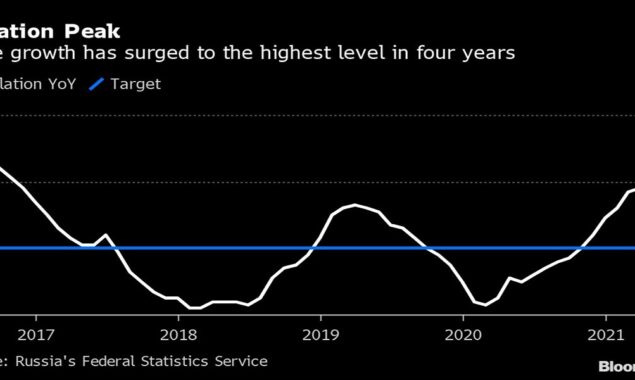
Russia’s consumer prices rose 7.61 percent in March, the highest monthly increase since January 1999, according to data released on Friday, as the economy was hammered by sanctions and a record drop in the Ruble.
Inflation in Russia has risen dramatically in recent weeks, with the ruble falling to an all-time low last month after Russia launched a “special military operation” in Ukraine on February 24.
The strong recovery in the ruble this week to 2022 highs stimulated demand for a wide range of items, from food basics to automobiles, on predictions that prices will rise even more.
Germany’s economic growth is expected to fall
In an interview with a business journalist, Labor Minister Hubertus Heil predicted that Germany’s economic growth might fall to 1.4 percent-1.5 percent this year, down from 2.7 percent in 2021, with an average of about 590,000 employees on reduced-hours layoff schemes throughout the course of the year.
Heil stated, “We will continue to grow.” “But all of this is contingent on the war not spreading farther and the energy supply remaining in place,” he continued.
If the situation worsened, the government would provide more aid and support for layoffs whenever possible to protect jobs, Heil added.
According to a document seen by an International news website on Friday, Germany aims to offer more than €100 billion ($108.8 billion) in aid to enterprises affected by the conflict in Ukraine.
Argentina’s inflation projection for 2022 is predicted to be 59.2 percent, according to economists consulted by the country’s central bank on Friday, owing mostly to the impact of the Ukraine war on prices.
The forecast is 4.2 percentage points higher than the last poll, which was released a month earlier.
The survey, which polled 41 people between March 29 and 31, also predicted 5.5 percent inflation in March and 3.2 percent growth for the year.
According to the experts polled, Argentina’s average nominal exchange rate will be 154 pesos per dollar by December and 222 pesos per dollar by the end of 2023.
Inflation in Chile is on the rise
Chile’s consumer prices rose 1.9 percent in March, the largest monthly increase in over three decades, highlighting the authorities’ difficulties in combating increasing inflation exacerbated by rising global commodity prices.
Food prices, non-alcoholic beverages, and education, according to the country’s official statistics agency, drove the increase.
The monthly rate was significantly higher than the 1.05 percent increase predicted by experts in the website’s poll, and it was the highest monthly rate since 1993. The rolling 12-month rate increased to roughly 9.4%, its highest level since 2008.
Read More News On
Catch all the Business News, Breaking News Event and Latest News Updates on The BOL News
Download The BOL News App to get the Daily News Update & Follow us on Google News.




